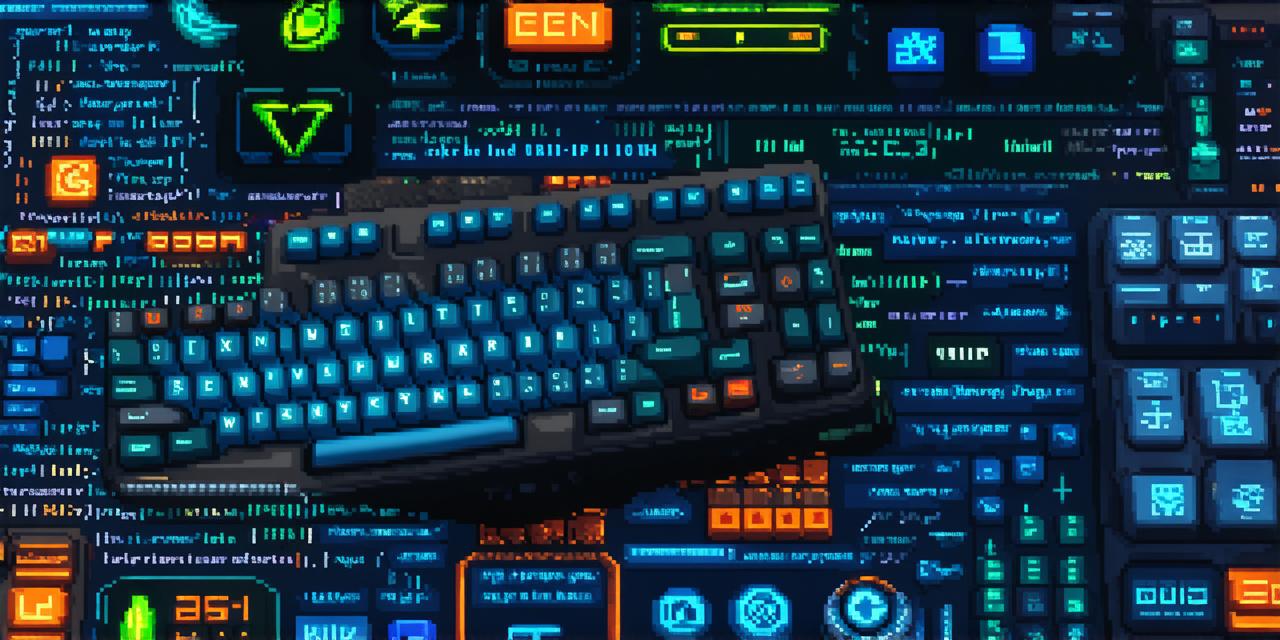The gaming industry is constantly evolving, with new technologies and tools emerging every year. One of the most critical aspects of game development is programming, which requires a strong understanding of various languages. In this article, we will explore the most commonly used programming languages in game development, including their strengths, weaknesses, and real-world examples of their use.

C++: The Powerhouse Language for Game Development
C++ is one of the most widely used languages in game development due to its speed, efficiency, and flexibility. It allows developers to optimize code for performance, making it an ideal choice for games that require real-time processing and precise graphics rendering. C++ also has a low memory footprint, allowing for large and complex games with minimal lag or crashes. However, it is important to note that C++ can be challenging to learn and requires a strong understanding of programming concepts and mathematics.
Unity: The All-in-One Game Development Platform
Unity is a popular game development platform that allows developers to create games for various platforms, including PC, console, mobile, and VR. Unity supports both C and JavaScript, making it accessible to programmers of all skill levels. It also has an extensive library of assets, tools, and plugins that can help speed up the development process and reduce costs. However, some developers may find Unity’s learning curve steep, and it can be challenging to create complex games using this platform.
JavaScript: The Web Development Language for Games
JavaScript is a widely used language for creating games on the web. It is a popular choice because of its simplicity and versatility, allowing developers to create games that run seamlessly across different platforms. JavaScript also has a large community of developers who contribute to its growing library of tools and assets.
Python: The High-Level Language for Game Development
Python is a high-level programming language that is gaining popularity in game development due to its simplicity and ease of use. It has a large community of developers who contribute to its growing library of tools and assets, making it an ideal choice for prototyping and early-stage game development. Python is also easy to learn, making it accessible to programmers of all skill levels. However, it may not be suitable for games that require high performance or complex graphics rendering, as it can be slower than other languages like C++.
C: The Microsoft Language for Game Development
C is a programming language developed by Microsoft that has become increasingly popular in game development due to its integration with the Unity game engine. It offers a combination of object-oriented and functional programming paradigms, making it easy to write efficient and scalable code. C also has a large library of tools and assets that can help speed up the development process and reduce costs. However, some developers may find C’s syntax more complex than other languages like Python or JavaScript.
Rust: The Safe Language for Game Development
Rust is a programming language developed by Mozilla that has become increasingly popular in game development due to its emphasis on safety and concurrency. It offers a combination of object-oriented and functional programming paradigms, making it easy to write efficient and scalable code. Rust also has a low memory footprint, making it an ideal choice for games that require high performance and complex graphics rendering. However, Rust can be challenging to learn, and its syntax may not be suitable for all programmers.
Summary
In conclusion, the choice of programming language in game development depends on the specific needs and requirements of the game being developed. While C++ is a powerful language for creating games with real-time processing and complex graphics rendering, Unity offers an all-in-one solution for game developers looking to create games for various platforms. JavaScript and Python are popular choices for web-based games and early-stage development, while C and Rust offer a combination of safety and performance for more complex games. Regardless of the language chosen, game developers must have a strong understanding of programming concepts and mathematics to ensure that their games are optimized for performance and run smoothly on all platforms.




